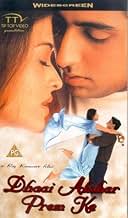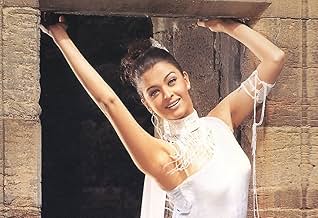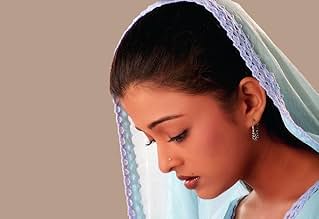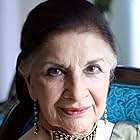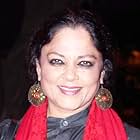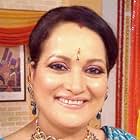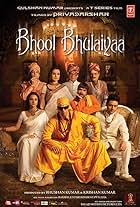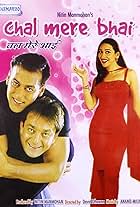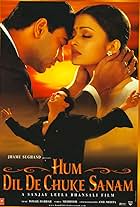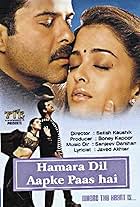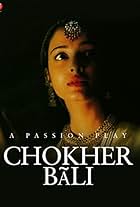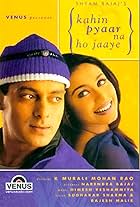DHAAI AKSHAR PREM KE is a hopelessly contrived and overly melodramatic musical romance from Bollywood, yet it deserves attention because of its central performance by the reigning queen of Bollywood, Aishwarya Rai. The beautiful Rai is seen to much better effect in such exemplary romantic spectaculars as HUM DIL DE CHUKE SANAM, TAAL, and DEVDAS, but she is quite compelling here playing a girl hopelessly in love with a man pining for someone else and ultimately forced, as she is in so many films, to marry a man she doesn't love.
A perennial staple of the melodramatic form is the misunderstanding that escalates to a point where it becomes too late to tell the truth and straighten things out. Here a young college girl from a traditional family, Sahiba (Rai), is rescued, first from attackers and then from a suicide attempt, by Karan (Abhishek Bachchan), a young army captain on leave. He takes her home to her family's rural estate and is assumed to be her new husband and welcomed enthusiastically by all the relatives but the girl's angry father, Yogi (Amrish Puri), who had opposed her going away. With each heart-warming ritual and ceremony, Karan becomes more and more a part of the family even though he is in love with a girl back home and eager to get back to her. Gradually, Sahiba grows to love him and eventually tells him so and begs him not to go.
To make a long story (167 minutes) short, Karan runs out on Sahiba only to learn that things at home are not what he thought they were. He returns to Sahiba's home to reclaim her, only to find her about to be married to the son of one of Yogi's business partners. Things take a particularly egregious melodramatic turn when two characters resort to some old-fashioned villainy (all that's missing are twirling mustaches), including tying up two of the protagonists to posts in a factory which is then set on fire. Having proved himself a man of action battling terrorists in the film's opening sequence, Karan gets an opportunity to be a two-fisted, pistol-shooting hero again in the film's implausible finale.
With the exception of a magnificent ceremonial number performed by Rai and a number of ornately dressed back-up dancers at the film's midway point, the songs are rather simply staged and consist largely of fantasy duets performed by Rai and Bachchan against exotic Indian backdrops and such far-flung locations as Scotland and Switzerland. The abrupt changes in setting (and costume) are rather jarring and tend to break the mood of the film and slow down the narrative.
The film remains worth seeing for Rai's moving portrayal of an anguished village girl who is both eager to break out of her traditional family structure yet is clearly nourished and empowered by the strong support she gets from her mother, grandmother, aunts and uncles. Rai's expressive eyes and mouth convey in heart-breaking fashion the gradual buildup of love for the man who rescued her and her anxiety at the prospect of him leaving. Even amidst the outlandish turn of events on display here, Rai proves what a superb film actress she is, expressing a full spectrum of emotions, from joy and contentment to fear and suicidal despair, never once striking a false note.

